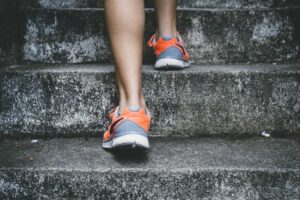
COVID-19 is changing the world in ways we never imagined. People’s livelihoods and hobbies have come abruptly to a stop, as globally we hit the pause button on life. As singers, we can still practise at home. But, with the virus becoming increasingly prevalent, we must take a moment to understand the effects it can have, not just on the respiratory system, but upon our voices as well.
Here we’ll give you an overview of the effects of coronavirus, the long-term damage, as well as some top tips to aid voice recovery.
Effects of COVID-19 on the Respiratory System
COVID-19 targets the respiratory system, spreading via the inhalation of droplets from sneezes or coughs. As the walls of the air sacs in our lungs are very thin, the virus can cross into the cells and begin to replicate.
For most, the virus causes only mild symptoms. However, in some, the respiratory tree lining becomes inflamed, causing a cough due to irritation of the airway.
As a result of inflammation, the airways become leaky, as fluid – thick with inflammatory gunk – accumulates in the lungs. The fluid then pools at the bottom of the lungs, filling the air sacs, and reducing the body’s ability to take in oxygen. We call this pneumonia.
Effects of Pneumonia on a Singers Voice
All this sounds very scary, but the vast majority who get pneumonia recover. As a singer, there is some good news.
Your voice is generated much higher up in the respiratory tract than where pneumonia occurs. Therefore, the effects on singing are less impactful. Pneumonia will still lead to difficulty breathing, temporarily decreasing a singer’s lung capacity, though in time this will improve.
The really good news is that singing is excellent for your lung health, increasing your lung capacity, reducing shortness of breath, and promoting your immune system. Therefore, shortening your recovery time.
Long-Term Lung Damage
As it has only been a few months, it’s difficult to assess the long-term damage of coronavirus on the lungs. Recovery naturally takes time. We do know that lung injuries can lead to scarring, which can take months to a year to heal. Though in some cases, scarring will persist and lead to a permanent drop in lung capacity.
However, for the vast majority of people, there will be no long-term consequences. After a short period of illness, they’ll return to normality.

Recovery and Rehabilitation
For those with severe disease, there is a long road ahead. Pulmonary rehabilitation tries to get the most out of damaged lungs, by using exercise, breathing techniques, and nutrition. While most people won’t require such intensive therapy, we can employ similar techniques to improve our health and promote voice recovery.
Follow basic breathing exercises, such as diaphragmatic breathing or pursed lips breathing to help boost your lung capacity. Get regular exercise to ensure your lungs are fit and healthy. Eat nutritiously and stay hydrated to help your body fight infection and promote recovery. Improve indoor air quality with air filters – particularly useful if you have asthma. But most importantly, keep singing! Singing boosts your immune system, is an excellent respiratory workout, and even improves your mood.
Learn Singing, Piano and learn how to MAKE MONEY with your Music! Check these out!








